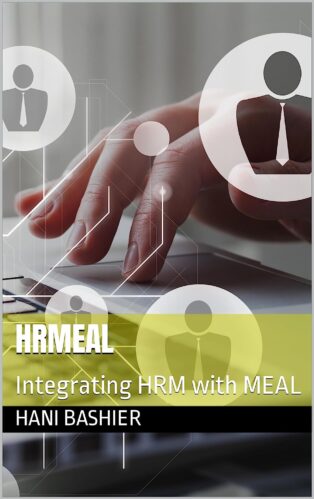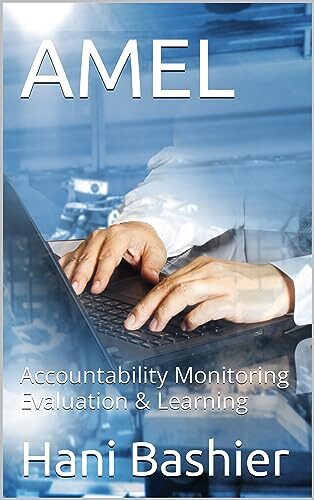The Disconnect: Why Program Managers May Struggle with Monitoring, Evaluation, Accountability, and Learning (MEAL)
In the world of international development and humanitarian aid, program managers play a crucial role in ensuring the successful implementation of projects and initiatives. However, despite the proven benefits of monitoring, evaluation, accountability, and learning (MEAL) in improving program outcomes, many program managers still struggle to embrace these important processes. In this comprehensive article, we will explore the possible reasons behind this disconnect and discuss potential solutions to bridge the gap between program managers and MEAL processes.
Understanding the Role of Program Managers and MEAL in Project Implementation
Before delving into the reasons behind this disconnect, it is essential to understand the roles and responsibilities of program managers and the significance of MEAL in project implementation.
Program Managers are responsible for the planning, execution, and closing of projects within an organization. Their primary duties include defining project objectives, developing project plans, assembling project teams, allocating resources, monitoring project progress, and communicating with stakeholders. In essence, program managers act as the driving force behind the successful completion of projects.
Monitoring, Evaluation, Accountability, and Learning (MEAL), on the other hand, is a set of practices that help organizations systematically collect, analyze, and use data to inform decision-making, enhance program effectiveness, and ensure accountability to stakeholders. MEAL processes enable organizations to track progress, learn from successes and challenges, and adapt their strategies to enhance the impact of their interventions.
Reasons for the Disconnect between Program Managers and MEAL Processes
While MEAL processes are designed to support program managers in achieving project objectives, several factors may contribute to the disconnect between the two. These factors include:
1. Limited Understanding of MEAL Processes
One of the primary reasons for the disconnect between program managers and MEAL processes is a lack of understanding or misconceptions about the purpose and value of MEAL. Program managers may view MEAL as an external imposition or a bureaucratic requirement rather than a helpful tool to enhance program effectiveness. This perspective may lead to resistance in embracing MEAL processes and integrating them into project implementation.
2. Insufficient Resources and Capacity
Implementing MEAL processes requires time, resources, and expertise. Program managers may be hesitant to allocate resources to MEAL activities if they perceive them as diverting resources away from the core project activities. Additionally, program managers may lack the necessary skills or capacity to effectively integrate MEAL processes into their work, leading to reluctance in adopting these practices.
3. Inadequate MEAL System Design
MEAL systems that are overly complex, cumbersome, or not user-friendly can deter program managers from fully engaging with these processes. If program managers perceive MEAL systems as burdensome or unhelpful, they may be less likely to prioritize MEAL activities and use the insights generated from these processes to inform their decision-making.
4. Fear of Negative Consequences
Program managers may be concerned about the potential negative consequences of MEAL findings, such as reduced funding, criticism from stakeholders, or loss of job security. This fear may lead to resistance in embracing MEAL processes or reluctance to openly share challenges and failures.
Bridging the Gap: Promoting MEAL Integration in Program Management
To address the disconnect between program managers and MEAL processes, several strategies can be employed to promote the integration of MEAL into program management practices:
1. Enhance MEAL Awareness and Understanding
Educating program managers on the purpose, value, and practical application of MEAL can help dispel misconceptions and promote a more positive perception of these processes. Training workshops, seminars, and mentorship programs can be used to build MEAL capacity and understanding among program managers.
2. Align MEAL Processes with Project Objectives
Ensuring that MEAL processes are closely aligned with project objectives and designed to support program managers in achieving these objectives can foster greater buy-in and integration. This alignment can be achieved by involving program managers in the design of MEAL systems and ensuring that MEAL indicators are directly linked to project outcomes.
3. Streamline and Simplify MEAL Systems
Developing user-friendly, streamlined, and efficient MEAL systems can help alleviate the perception that these processes are burdensome or time-consuming. Investing in user-friendly data collection tools, automating data analysis processes, and providing clear guidance on MEAL workflows can make it easier for program managers to engage with and utilize MEAL findings.
4. Foster a Culture of Learning and Adaptation
Creating an organizational culture that values learning, adaptation, and continuous improvement can help reduce the fear of negative consequences associated with MEAL findings. Encouraging open dialogue, celebrating successes, and recognizing the value of learning from challenges can help create an environment in which program managers feel more comfortable engaging with MEAL processes.
In conclusion, overcoming the disconnect between program managers and monitoring, evaluation, accountability, and learning processes requires addressing the underlying factors contributing to this gap. By enhancing MEAL awareness and understanding, aligning MEAL processes withproject objectives, streamlining and simplifying MEAL systems, and fostering a culture of learning and adaptation, organizations can promote greater integration of MEAL into program management practices. Ultimately, this integration will not only improve program effectiveness but also contribute to the overall success and impact of development and humanitarian initiatives.
With a comprehensive understanding of the challenges faced by program managers when it comes to MEAL processes, organizations can work to bridge the gap and ensure that these vital practices are fully integrated into project implementation. By doing so, organizations will be better equipped to achieve lasting, positive change in the communities they serve, and program managers will be empowered to make data-driven decisions that enhance the impact of their projects. Embracing MEAL processes as an integral part of program management is a crucial step towards creating a more effective, accountable, and impactful development sector.







